- Dr. Songyee Yoon graduated from the Korea Advanced Institute of Science and Technology (KAIST) with a bachelor’s degree in Electronics and Electrical Engineering in 1996 and received a Ph.D. from MIT in Computational Neuroscience, Brain, and Cognitive Sciences in 2000. She subsequently graduated from Santa Clara University School of Law in 2020. Yoon previously worked at Mckinsey & Company and SK Telecom, then joined NCSOFT as vice president in 2008. She is currently president and chief strategy officer of NCSOFT as well as chief executive officer of NC West Holdings. She is also a chairperson of NC Cultural Foundation.
- Yoon was instrumental in founding NCSOFT AI Center and Natural Language Processing (NLP) Center, incorporating various R&D accomplishments in AI and machine learning technology into corporate business. Yoon has been recognized by various organizations for her leadership. She was named one of the Top 50 Women in Business to Watch by the Wall Street Journal in 2004, Young Global Leader by the World Economic Forum in 2006, and a Young Leader by the Boao Forum for Asia in 2007.
- She is currently a member of the Advisory Council of the Institute for Human-Centered AI at Stanford University, along with Eric Schmidt (former Google executive chairman), Jerry Yang (co-founder of Yahoo), and Condoleezza Rice (the 66th United States Secretary of State). In 2019, Yoon participated in the ‘Korea-Sweden Business Summit’ as a Korean speaker, serving as a private diplomat to highlight the importance of AI technology. In March 2022, Yoon was appointed as a distinguished professor emeritus at Ewha Womans University in the Department of AI in the Division of AI Convergence
Speakers
Main Speakers
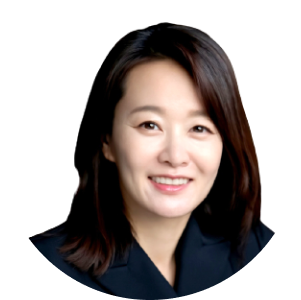
Yoon Songyee
President & Chief Strategy Officer, NCSOFT
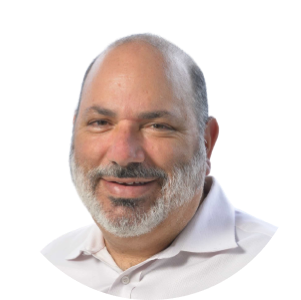
James Landay
Co-Founder and Vice Director, Institute for Human-Centered AI (HAI), Stanford University
- James Landay is a Professor of Computer Science and the Anand Rajaraman and Venky Harinarayan Professor in the School of Engineering at Stanford University. He specializes in human-computer interaction, design, and ubiquitous computing. He co-founded and is Vice Director of the Stanford Institute for Human-Centered Artificial Intelligence (HAI). Landay previously was a tenured faculty member at Cornell Tech, the University of Washington, and UC Berkeley. He was also Director of Intel Labs Seattle and co-founder of NetRaker. Landay received his BS in EECS from UC Berkeley, and MS and PhD in Computer Science from Carnegie Mellon University. He is a member of the ACM SIGCHI Academy and an ACM Fellow. He served on the NSF CISE Advisory Committee for six years.

Frank Pasquale
Jeffrey D. Forchelli Professor of Law, Brooklyn Law School
- Frank Pasquale is an expert on the law of AI, algorithms, and machine learning. He is Jeffrey D. Forchelli Professor of Law at Brooklyn Law School, an Affiliate Fellow at Yale University's Information Society Project, and a member of the American Law Institute. He is co-editor-in-chief of the Journal of Cross-Disciplinary Research in Computational Law (CRCL), based in the Netherlands, and a member of an Australian Research Council (ARC) Centre of Excellence on Automated Decision-Making & Society (ADM+S). His book The Black Box Society: The Secret Algorithms That Control Money and Information (Harvard University Press 2015) has been recognized as an important study on the law and political economy of information. It was translated into Korean in 2016. His New Laws of Robotics: Defending Human Expertise in the Age of AI (Harvard University Press 2020) rethinks the political economy of automation, to promote human capacities as the irreplaceable center of an inclusive economy. It is under contract to be translated into Korean. Pasquale has published numerous articles on law & technology, and has shared his expertise in many government advisory roles.
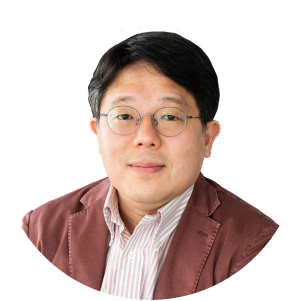
Jeon Chi-hyung
Professor and department head, Graduate School of Science and Technology Policy, KAIST
- Chihyung Jeon is an associate professor at the Graduate School of Science and Technology Policy (STP) of the Korea Advanced Institute of Science and Technology (KAIST). He received his PhD degree in STS (Science, Technology, and Society) at the Massachusetts Institute of Technology in 2010. Before joining KAIST STP in 2011, he spent a year at the Max Planck Institute for the History of Science in Berlin. In 2016-17, he was a Carson Fellow at the Rachel Carson Center for Environment and Society in Munich. In January 2018, he was a visiting professor at the University of Vienna, teaching a graduate course on robotics and society. In 2023, Jeon is working as a visiting researcher at the Institute for Future Initiatives of the University of Tokyo.
- Jeon conducts research mainly on the relationship between humans and technologies within social and cultural contexts, examining various policy issues that arise from specific human-technology-society configurations. He is interested in the feelings of control, empowerment, intimacy, anxiety, and loneliness that humans have in front of machines. Recently he is organizing “a.human,” a research network of scholars interested in atypical forms of human—artificial, augmented, almost, or alternative. In 2017, Jeon participated in launching a quarterly science magazine Epi (published in Korean) that features critical essays on science, technology, and society. Since 2016, he has been contributing monthly columns on science and society to the Korean daily newspaper Hankyoreh. Apart from his usual research activities, he has been also involved in the investigation of the Sewol ferry disaster of 2014 by participating in the writing of the official report of the Sewol Investigation Commission (2018). He also launched an educational website Teach Sewol, featuring photos, documents, and class modules.
- Jeon’s affiliation with academic societies includes Society for Social Studies of Science (4S, an elected Council member since 2020), Society for the History of Technology (SHOT), Korean Association of Science and Technology Studies (KASTS), and Korea History of Science Society (KHSS). As of 2021, he is an associate editor for East Asian Science, Technology and Society: An International Journal and a contributing editor for Technology and Culture, the official journal of SHOT. In 2019 and 2020, he served as the editor-in-chief for the Journal of Science and Technology Studies published by KASTS.
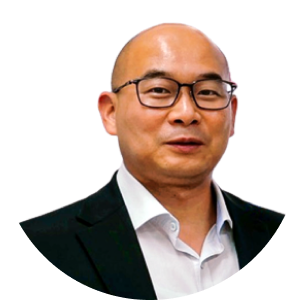
Ahn Chang-wook
Professor, AI Graduate School of GIST / CEO, CreativeMind. inc
- Professor Chang Wook Ahn received his Ph.D. in Evolutionary Machine Intelligence from the Department of Information and Communications Engineering at Gwangju Institute of Science and Technology (GIST) in 2005. Since then, he has worked at Samsung Advanced Institute of Technology (2005-2007) and served as an assistant/associate professor at Sungkyunkwan University (2008-2017). Currently, he is a professor at the GIST AI Graduate School and has been serving as the CEO of CreativeMind Co., Ltd, an AI music startup, since 2017.
- In 2016, Prof. Ahn successfully developed the first AI composer in Korea named "EvoM," which gained attention following the AlphaGo event. Since then, EvoM has released digital singles across various genres, ranging from EDM to K-pop. Additionally, EvoM has continuously released collaboration songs with famous singers such as Hong Jin-Young, Lee So-Jung, and Ailee. Notably, the collaboration song with Ailee, "I Feel So Alone," became the first AI-generated song to enter the top 10 of the Melon chart within four weeks of its release. In 2018, Prof. Ahn also developed a game AI for "StarCraft II," which was considered to have the highest difficulty level among games. The game AI won the first place at an international competition with participants from five continents.
- Prof. Ahn is currently conducting research on the principles and functions of human intelligence based on the synthesis of human expertise and experiential data, moving away from the simple deep learning-based hyper-scale AI research. He particularly focuses on creative intelligence such as music composition, which is a unique ability possessed only by humans. In relation to this, he aims to open a new world, such that anyone can easily and quickly create and enjoy music content through their own composer, anytime and anywhere.
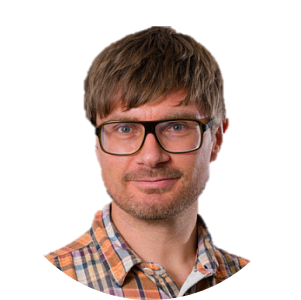
Drew Hemment
Professor of Data Arts and Society and Director of Festival Futures, Edinburgh Futures Institute and Edinburgh College of Art, Edinburgh University
- Drew Hemment is Professor of Data Arts and Society and Director of Festival Futures at Edinburgh Futures Institute and Edinburgh College of Art within University of Edinburgh. He is a Turing Fellow and a Fellow of the Royal Society of Arts. He leads The New Real (www.newreal.cc) and Experiential AI in partnership with the Alan Turing Institute and Edinburgh's Festivals.
- Over 30 years, Drew has been one of the key figures who has shaped the field of digital art and culture in Europe. He has worked with cities and nations representing culture and research at the highest level, and worked for the Singapore Government on Smart Nation and Singapore’s 50th anniversary. In 1995, Drew founded FutureEverything, named by The Guardian one of the top 10 ideas festivals in the world. In 2016, he founded the GROW Observatory, the world’s first continental scale citizens’ observatory. He is presently working to develop a transformative research agenda for the coming decade on AI and the Arts, and to build a national capability for the UK in this highly significant area.
- Drew is a frequent public speaker and regularly appears in the media, including as expert witness on BBC's Moral Maze, and film critic for Afternoon Show on BBC Radio Scotland. He is a member of the Editorial Board for Leonardo and Alan Turing Institute Steering Group for Arts, Humanities and Heritage. His work has been recognised by 14 international awards including Soil Award 2019 (Winner), STARTS Prize 2018 (Honorary Mention), Lever Prize 2010 (Winner), and Prix Ars Electronica 2008 (Honorary Mention).
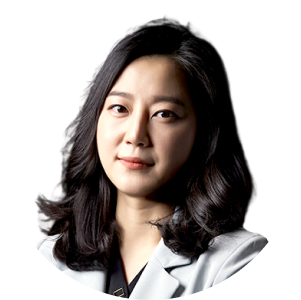
Park Jae-yeon
Professor, Department of Culture and Contents, AJOU University
- Jaeyeon Park graduated from the Department of French Language and Literature at Seoul National University. She received her B.A. and M.A. in Art History from the University of Paris 1, her M.A. in Cultural Anthropology from the Higher School of Social Sciences (EHESS), and her Ph.D. in Art History from the University of Paris 1 in 2017 about colonial art institutions. Her research interests include the circulation and reception of art, art institutions, and policies. Since 2020, she has been a professor at the Department of Cultural Contents at Ajou University. She writes and speaks about the meaning and utility of art through various venues and media. She has a wide range of experience in contemporary art scenes and systems, including serving as a member of the Art Bank of the National Museum of Modern and Contemporary Art and a screening committee for pre-evaluation of public museums and galleries at the Ministry of Culture. Her recent research covers the educational effectiveness of online museum content, digital collage in contemporary Africa concerning the European colonial experience, legislative research on the French museum law, digital storytelling-based war narrative exhibition, and virtual museum/imaginary museum.
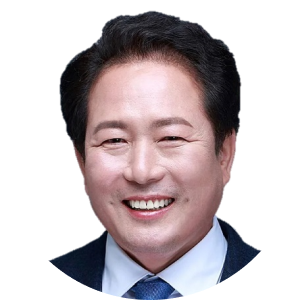
Lim Chae-won
Visiting Scholar, Edinburgh University
- He majored in religious studies and public administration at Seoul National University. He is a professor at the Global Academy for Future Civilization and Institute for Human Society at Kyung Hee University, and has been a visiting scholar at the University of Edinburgh from September 2022 to the present. He is also an advisor to the Speaker of the National Assembly, providing legislative advice on the Korean Wave and East Asian renaissance in Europe, including the UK, and participating in Edinburgh Futures Institute for research such as ART AI.
- He is collaborating with researchers from 21 countries on Comparative Agenda Project in the field of public administration, and He is researching AI in the social sciences by participating in the development of the Policy Perceptron Model. He began research to connect East Asian contemporary art, such as the Korean Wave, with ART AI. He is currently working on the application field where East Asian civilization research is combined with AI as his research field.



